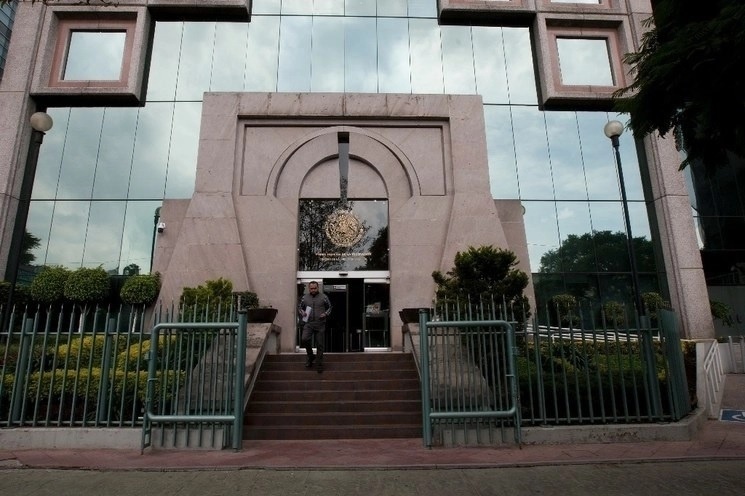In order to protect the supplementary pensions of magistrates and judges in light of the entry into force of the judicial reform, the Federal Judicial Council (CJF) unanimously approved on September 11 a system that grants lifetime compensations, which are added to the pensions granted by the Institute of Social Security and Services for State Workers (ISSSTE) and which will be 45 to 80 percent of the income granted by the institute.
As of July 31, the CJF employed 768 district judges and 951 magistrates. The former have a net monthly salary of 139,210 pesos, and the magistrates, 152,531, according to the Summary of Relevant Information on Administrative Matters of the CJF.
With the entry into force of the reform of the Judicial Branch, which has already been approved by more than 20 local congresses and the Congress of the Union, whose reform decree is expected to be published on September 15, the trusts held by the Supreme Court of Justice of the Nation (SCJN) and the CJF will be extinguished. The latest statement of account of this fund for complementary pensions of federal magistrates and judges reported a balance of 5 thousand 191 million 604 thousand 408 pesos as of June 30 of this year.
The amendment approved by the CJF and announced yesterday considers that judges and magistrates who have held administrative or jurisdictional positions in any instance of the Judicial Branch of the Federation (PJF) may request early retirement at 55 years of age or younger, provided that they have worked from 25 years to 35 years in the same, with which they will obtain a 45 percent supplementary pension.
Benefits
This benefits judges and magistrates, since the ISSSTE Law only allows retirement pensions with a minimum age of 58 years for men and 56 for women.
This benefit will be granted to those who are 57 years old and have 25 years of service, and the supplementary pension can reach up to 52.5 percent if they have 35 years of service.
The highest percentage of the supplementary pension (80) will be granted to those who are at least 65 years old and have 35 years of service.
The percentages that will correspond to each magistrate or judge were defined in a table, and therefore article 73 of the general agreement of the plenary session of the CJF, which establishes the general working conditions for magistrates and judges, was amended.
The general agreement that regulates the supplementary pension plan for circuit magistrates and district judges currently establishes a minimum age of 65 years and at least 25 years of service to access the supplementary pension for early retirement, aligning itself with the ISSSTE old-age pension. However, it does not contemplate the different types of pensions recognized in the ISSSTE Law.
Therefore, through the agreement The types of pension recognized in the ISSSTE Law, as well as its tenth transitory provision, are incorporated into the general agreement that regulates the complementary pension plan for magistrates and judges, in accordance with the principle of hierarchical subordination, differing only in that the ISSSTE Law contemplates pension assumptions that do not require age or minimum years of service, instead, this agreement establishes as an essential requirement to request voluntary retirement to have at least 25 years of service in the Judicial Branch of the Federation and to have been ratified
.
With this measure, the agreement states, it is guaranteed that judges who are able to access an Issste pension can also obtain the complementary one, in order to exercise the right to a dignified retirement, in accordance with their career and years of service
.
Prior to this agreement, the pension plan for judges and magistrates considered early retirement at a minimum of 65 years of age and 25 years of service, which would result in compensation of 45 percent, while at the same age, but with 35 years of service, their compensation could rise to 80 percent. It also considered forced retirement at 75 years of age and receiving the equivalent of 80 percent of their gross monthly income from their last position, whether they had administrative or jurisdictional functions in the SCJN, the CJF or the Electoral Tribunal.
#Judiciary #protects #additional #lifelong #pensions #lawyers
– 2024-09-16 01:29:50


